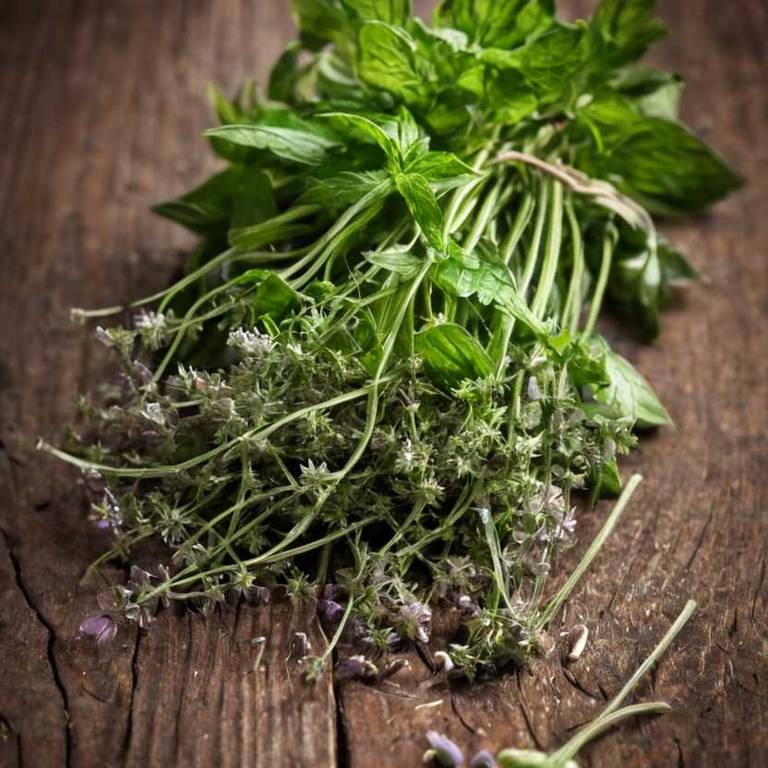By Leen Randell
Updated: Jul 20, 2024
10 Medicinal Constituents Of Plantago Ovata (Psyllium)

Plantago ovata has active constituents such as mucilage, fiber, and saponins.
These constituents possess medicinal properties that include soothing digestive issues, lowering cholesterol levels, and regulating blood sugar. Mucilage helps in easy bowel movements, fiber aids in satiety and weight management, and saponins have antioxidant properties. These properties can improve lives by reducing the risk of cardiovascular disease, improving blood glucose control, and alleviating symptoms of irritable bowel syndrome.
Regular consumption can also promote healthy gut flora.
This article explains in details the 10 best active constituents of Plantago ovata.
1. Allantoin
Plantago ovata allantoin is a naturally occurring compound found in the seeds of the Plantago ovata plant.
It has been traditionally used in herbal remedies for its anti-inflammatory and wound-healing properties.
Allantoin is believed to stimulate cell regeneration, improve skin elasticity, and help reduce fine lines and wrinkles, making it a popular ingredient in skincare products.
2. Galactomannans
Plantago ovata galactomannans is a complex polysaccharide compound extracted from the seeds of the plantain plant.
It consists of a combination of galactose and mannose sugars linked together in a specific structure. The galactomannan molecule has unique properties that make it an effective natural thickening agent, emulsifier, and binder in food and pharmaceutical applications.
Its versatility has led to its widespread use as a dietary fiber supplement and ingredient in various industries.
3. Mucilage
Plantago ovata mucilage is a natural gel-like substance extracted from the seeds of the plant.
It is composed of soluble and insoluble fiber, which forms a thick, protective coating around the seed. This mucilage has been used for centuries in traditional medicine to treat various ailments, including digestive issues and skin conditions.
It is also commonly used as a dietary supplement to support gut health and promote regular bowel movements.
4. Saponins
Plantago ovata saponins is a type of phytochemical extracted from the seeds of the plant.
These saponins are naturally occurring compounds that exhibit surfactant properties, able to reduce surface tension and form foam.
They have been shown to possess antioxidant, anti-inflammatory, and antimicrobial activities, making them potentially beneficial for various health applications, including cardiovascular disease prevention, wound healing, and skin care.
5. Phenolic acids
Plantago ovata phenolic acids is a type of bioactive compound found in its seeds.
These phenolic acids have been shown to possess various biological activities, including antioxidant, anti-inflammatory, and antimicrobial properties.
The most abundant phenolic acid in Psyllium seed extracts is gallic acid, which has been reported to exhibit potential health benefits such as reducing inflammation, improving gut health, and exhibiting antidiabetic effects.
6. Flavonoids
Plantago ovata flavonoids is a class of bioactive compounds that have been extensively studied for their potential health benefits.
These flavonoids are found in the seeds and leaves of the plantain plant and have been shown to exhibit antioxidant, anti-inflammatory, and antimicrobial properties.
They may help protect against chronic diseases such as cardiovascular disease, diabetes, and cancer by inhibiting free radical formation and improving blood lipid profiles.
7. Kaempferol
Plantago ovata kaempferol is a flavonoid compound extracted from the seed husks of the plant.
This bioactive compound has been extensively studied for its potential health benefits, including anti-inflammatory, antioxidant, and antimicrobial properties.
Kaempferol has been shown to have a positive impact on cardiovascular disease risk factors, such as blood lipid levels and blood pressure, making it a promising natural ingredient in functional foods and dietary supplements.
8. Quercetin
Plantago ovata quercetin is a bioactive compound extracted from the husk of the plant's seeds.
Quercetin has been found to possess numerous health benefits, including anti-inflammatory and antioxidant properties.
It has been shown to reduce inflammation in the body, protect against oxidative damage, and even exhibit antimicrobial and antiviral activities.
9. Lignans
Plantago ovata lignans is a type of phytochemical compound found in the seeds of the plant.
It has been shown to have various health benefits, including antioxidant and anti-inflammatory properties, as well as potential therapeutic effects on cardiovascular disease, diabetes, and certain types of cancer.
Lignans are a class of compounds that are also found in other plant-based foods such as flaxseed and sesame seeds, making Plantago ovata lignans an important component of a balanced diet.
10. Phytosterols
Plantago ovata phytosterols is a natural plant-based compound that has been shown to have numerous health benefits.
Phytosterols are a type of plant sterol that can help lower cholesterol levels by blocking the absorption of dietary cholesterol in the gut.
They work by binding to bile acids and eliminating them from the body, which can lead to an increase in HDL (good) cholesterol and a decrease in LDL (bad) cholesterol.